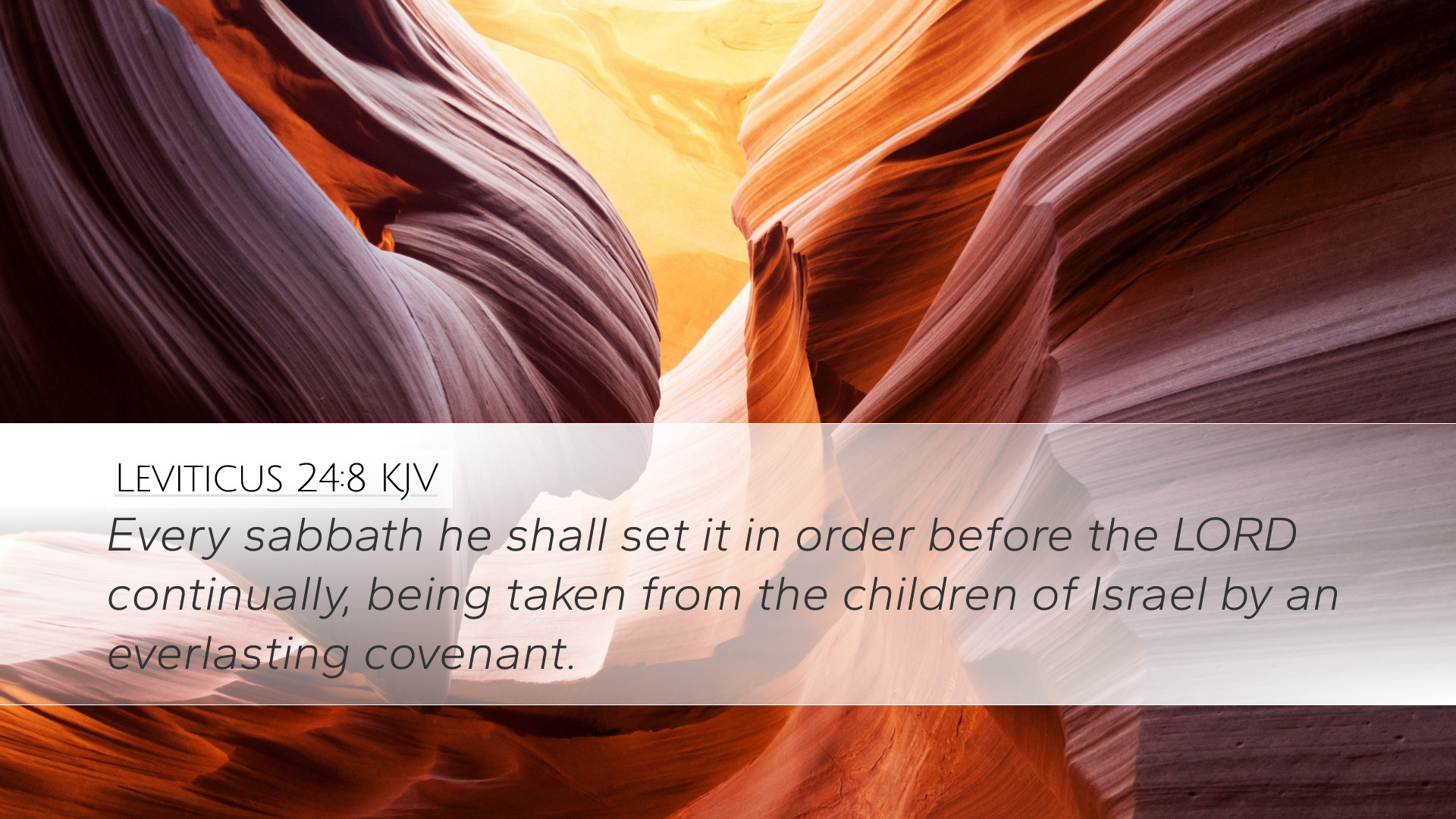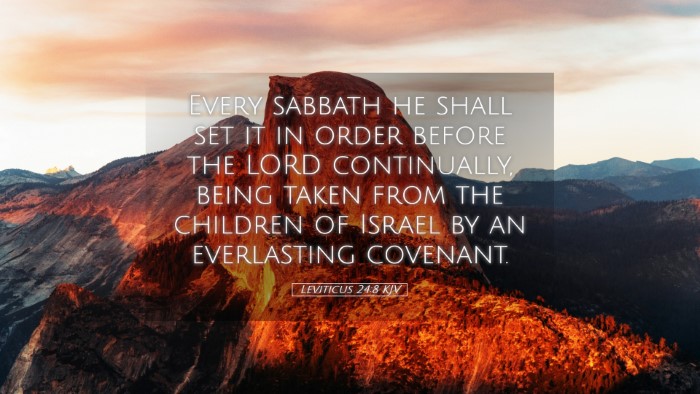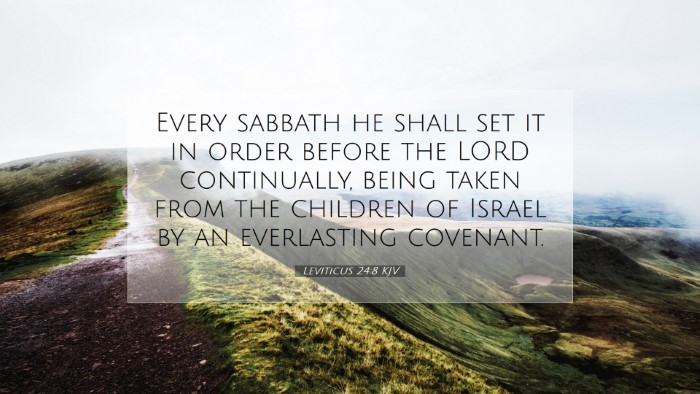Commentary on Leviticus 24:8
Verse Text: "Every sabbath he shall set it in order before the LORD continually; being taken from the children of Israel by an everlasting covenant."
Introduction
The verse Leviticus 24:8 is a part of the divine ordinances delivered to Israel concerning the service of the tabernacle and the responsibilities associated with the sacred items, particularly the showbread. This verse reminds us of God’s covenant with His people and serves to reinforce the sanctity of His provisions.
The Role of the Showbread
Matthew Henry notes that the showbread, or "bread of the Presence," holds profound significance as it symbolizes God’s presence among His people. Every sabbath, twelve loaves, representing the twelve tribes of Israel, were placed on the table in the Holy Place, signifying that God continually provides for His people (Henry).
Albert Barnes emphasizes the necessity of these loaves being replaced weekly, illustrating that God's promises are renewed constantly. The act of placing the bread and removing the old shows a continual relationship and dependency on God’s mercy and provision (Barnes).
The Importance of the Sabbath
This verse stresses the observance of the Sabbath in relation to the showbread. Adam Clarke elaborates on the importance of the Sabbath as a day set aside for the remembrance of God's creation and redemptive acts. The continuity of setting the showbread before the Lord on the Sabbath serves as a regular reminder of the covenant relationship (Clarke).
The Everlasting Covenant
The concept of “an everlasting covenant” is central to this verse. This emphasizes that the promises of God and His relationship with His people are not temporary but are meant to endure through generations (Henry). The same themes are echoes of the broader theological significance of covenant in both the Old and New Testaments, where believers see the fulfillment of God's promises in Christ.
Theological Implications
In a theological context, this verse illustrates several principles fundamental to the understanding of God's covenantal love:
- God's Faithfulness: The continual provision of bread epitomizes God's unwavering support for His people (Barnes).
- Community and Representation: The twelve loaves serve to represent the entirety of the tribes of Israel, embodying communal worship and fellowship (Henry).
- Symbol of Christ: The showbread symbolizes Jesus Christ, the Bread of Life, foreshadowing the ultimate provision God makes for humanity’s spiritual nourishment through Christ (Clarke).
Practical Applications
For pastors and theologians, Leviticus 24:8 is a call to reflect on the importance of maintaining spiritual practices that nurture community and remind believers of God's continual presence and provision.
Here are some practical applications:
- Regular Worship: Just as the priests were to bring forth the showbread weekly, contemporary worship should maintain a rhythm of renewal and remembrance of God's presence.
- Teaching on Covenant: Churches must teach about God's covenant, helping congregants understand that their relationship with God is based on faithfulness and mutual commitment.
- Encouragement of Community: The symbolism of the twelve loaves speaks to the importance of community in worship. Fellowship and communal worship should be emphasized to reflect God's intention for His people.
Conclusion
Leviticus 24:8 captures the essence of God's ongoing relationship with His people. As expressed through the showbread, God's faithfulness and the significance of covenant remind Christians of their continual reliance on His grace. Understanding and teaching the meaning of these symbols is vital for a healthy, vibrant faith community.


